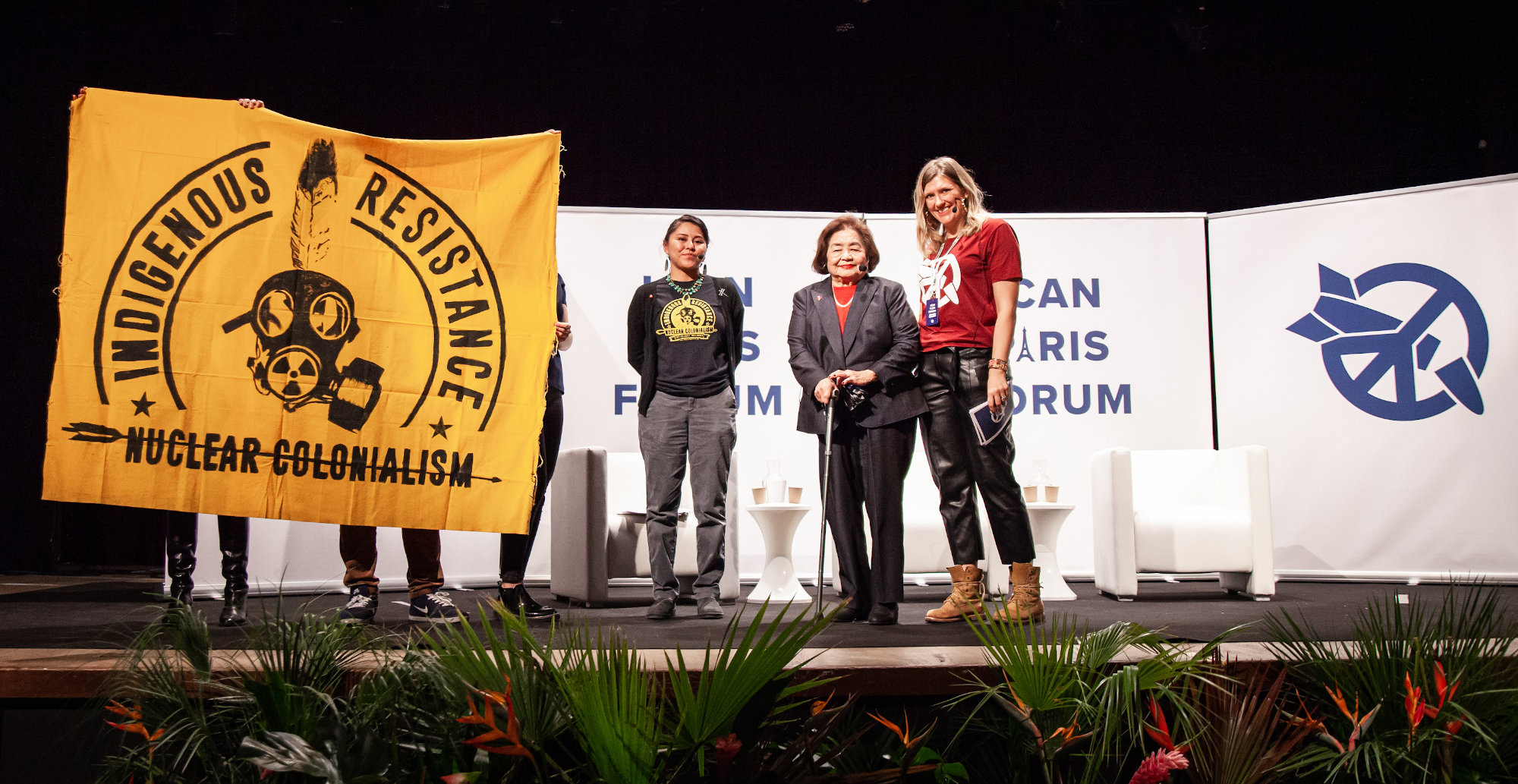October 5, 2020
The Program on Science and Global Security is supporting a new undergraduate student project to investigate the impacts of the nuclear age on Native Nations in the United States and Princeton’s role in helping shape this age. The project Nuclear Princeton: Indigenous Students’ Exploration of Princeton’s Nuclear Legacies is also supported by Princeton’s Council on Science and Technology and the Addressing Racism Fund from the Office of the Dean of the Faculty.
Led by SGS affiliated faculty member Ryo Morimoto, an Assistant Professor of Anthropology, the interdisciplinary undergraduate student project team includes Jessica Lambert ‘22 (Choctaw Nation), Keely Toledo ‘22 (Navajo Nation), Brooke Kennedy ‘23 (Walpole Island First Nation, Ojibwe), Kat Mumm ‘21 (Ojibwe), Thomas Dayzie '22 (Navajo Nation), and Hunter Worth '22 (Native Hawai’ian). The project involves archival research and interviews to connect with people both involved with and affected by the nuclear age.
The Nuclear Princeton project aims to revisit the scientists and knowledge coming out of Princeton University and the under-acknowledged impacts of nuclear science, technology, and engineering on Native lands and communities. It will explore how accomplishments in the atomic sciences were made possible by institutionalized secrecy, environmental degradation, cultural disruptions, and the mobilization of Native communities. The project also will look at Princeton based research in opposition to nuclear weapons and the threats from nuclear energy programs and the experiences of Native resistance.
The project is being done in collaboration with the student group Natives at Princeton and supports efforts to establish an Indigenous Studies certificate program. One of the goals of the project moving into the fall is to create a syllabus for a course that investigates Indigenous communities and nuclear science. It also will provide an opportunity to underrepresented groups to explore alternative narratives that center their own and their communities’ experiences.
